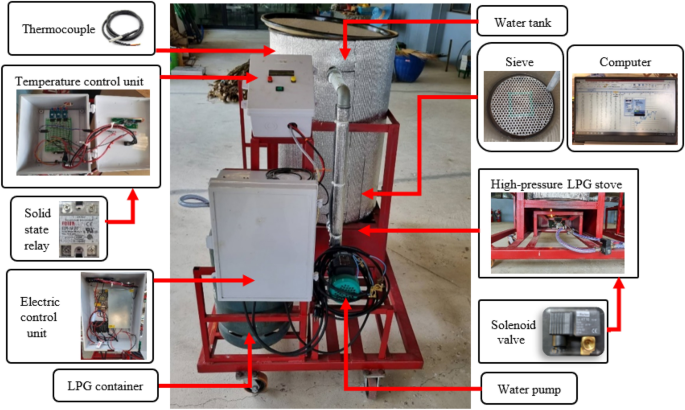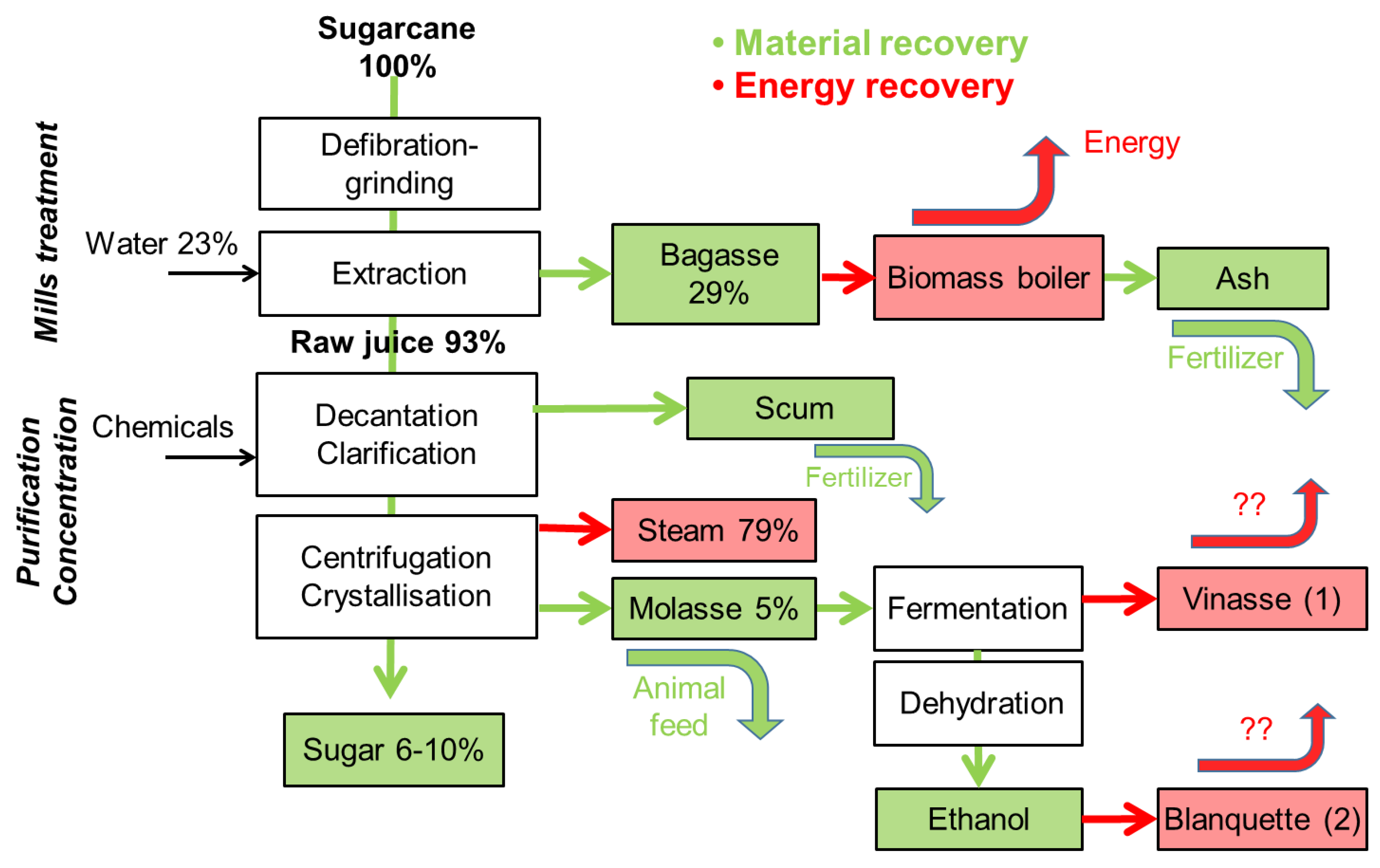The Future of Green Innovation: Spotlight on Products From Sugarcane
The Future of Green Innovation: Spotlight on Products From Sugarcane
Blog Article
Discover the Innovative Benefits of Products From Sugarcane for Lasting Living
Sugarcane has become a critical resource in the pursuit for sustainable living. Its varied applications extend eco-friendly product packaging, renewable resource, and healthier food choices. As industries seek environment-friendly choices, sugarcane's flexibility supplies encouraging options. The real possibility of sugarcane expands past its existing usages. Discovering its innovative advantages could expose new pathways toward an extra lasting future. What other possibilities might this exceptional plant hold?

The Surge of Sugarcane as a Lasting Source
As global understanding of environmental concerns expands, sugarcane has actually become a popular lasting resource. This functional crop offers a selection of advantages that contribute to environment-friendly practices. Sugarcane is an eco-friendly resource, with the ability of thriving in diverse climates while soaking up carbon dioxide, thus alleviating greenhouse gas discharges. Its rapid development cycle permits constant harvesting, leading to a continual supply of raw material.Additionally, sugarcane cultivation commonly needs much less water contrasted to other plants, making it an effective choice in water-scarce regions. The byproducts of sugarcane, such as bagasse and molasses, can be repurposed for various applications, minimizing waste and promoting circular economy concepts. Additionally, developments in farming techniques have actually led to more sustainable farming approaches, additionally boosting sugarcane's ecological account. As customers progressively seek lasting alternatives, sugarcane stands apart as a viable alternative for those dedicated to reducing their ecological footprint.
Biodegradable Product Packaging Solutions
How can biodegradable product packaging solutions change the method consumers come close to sustainability? By making use of sugarcane-based products, these ingenious remedies offer an engaging option to traditional plastics. Eco-friendly packaging made from sugarcane decays normally, noticeably reducing landfill waste and greenhouse gas emissions. As consumers come to be significantly conscious of their ecological effect, the demand for lasting packaging remains to rise.These sugarcane-derived items not just offer functional objectives however additionally align with eco-conscious consumer worths. They provide a substantial way for individuals and companies to add to a circular economic climate, advertising resource effectiveness and lessening environmental impacts. Additionally, as markets take on eco-friendly alternatives, they foster a culture of sustainability that reverberates with a growing market looking for liable choices.In significance, eco-friendly product packaging options from sugarcane represent an essential progression in sustainable practices, encouraging consumers to make environmentally friendly choices without sacrificing convenience or top quality.
Renewable Resource Generation From Sugarcane
A significant section of sustainable power generation can be originated from sugarcane, showcasing its flexibility past traditional farming usages. Sugarcane biomass, including bagasse and leaves, is a potent source for bioenergy production. This biomass can be exchanged biofuels such as ethanol, which acts as a cleaner alternative to fossil fuels. Furthermore, the burning of sugarcane byproducts generates vapor and electrical power, offering a power resource for sugar mills and close-by communities.The farming of sugarcane also adds to carbon sequestration, as the plants take in carbon dioxide during their development cycle. By utilizing sugarcane for power, waste is lessened, and lasting techniques are motivated. This renewable resource approach not just supports energy needs but also promotes rural growth, developing work in bioenergy sectors. In general, sugarcane sticks out as a principal in the shift to lasting power solutions, aligning with global efforts to decrease carbon impacts.

Eco-Friendly Textiles and Fabrics
Environment-friendly fabrics and fabrics stemmed from sugarcane present an encouraging option to standard materials. These biodegradable choices not only lower environmental effect however also use longevity and performance comparable to standard textiles. Sustainable manufacturing procedures further enhance their appeal, making them an essential part of a lasting way of life.
Biodegradable Material Options
Why is the adjustment toward biodegradable material alternatives crucial for sustainable living? The increasing understanding of ecological destruction has actually triggered a search for choices to conventional textiles, which typically add to contamination and waste. Biodegradable textiles, acquired from sustainable resources such as sugarcane, offer a promising solution. These materials break down naturally, lowering land fill build-up and decreasing ecological impact. Furthermore, they can assist lower carbon impacts and reliance on fossil fuels. As customers come to be more eco-conscious, the need for sustainable fabrics expands, motivating makers to introduce and spend in eco-friendly alternatives. This adjustment not just sustains sustainable techniques yet also promotes a round economic climate, leading the way for a more responsible method to style and fabric production.
Durability and Performance
Sturdiness and efficiency are critical elements when evaluating environment-friendly textiles and fabrics. Sugarcane-derived products demonstrate impressive stamina and durability, making them appropriate for various applications. These textiles usually show premium moisture-wicking properties, which improve comfort in everyday wear. Additionally, their natural fibers add to breathability, making certain that garments continue to be wearable and fresh even sought after conditions. The performance of sugarcane-based textiles encompasses their resistance to damage, enabling items to keep their integrity with time. In addition, these environmentally friendly textiles can be dealt with to improve UV security and tarnish resistance, meeting the sensible needs of customers without endangering sustainability. Ultimately, sugarcane materials use an unified balance of toughness and performance, interesting ecologically aware individuals.
Sustainable Production Processes
The impressive longevity and efficiency of sugarcane-derived textiles are matched by sustainable manufacturing procedures that focus on ecological obligation. These processes utilize renewable energies, reducing reliance on fossil gas and decreasing carbon impacts. By taking advantage of the by-products of sugarcane farming, makers can create environmentally friendly fabrics while promoting waste reduction. Advanced methods, such as water-efficient dyeing and biodegradable treatments, further enhance the sustainability of these textiles. Additionally, the use of non-toxic chemicals warranties that the production procedure does not hurt communities or human health and wellness. This commitment to sustainability not just interest eco conscious customers but also sustains neighborhood economic climates by promoting sustainable agricultural methods. In general, sugarcane-derived textiles represent a significant step towards a greener future in the fashion business.
Sugarcane-Based Biofuels and Their Effect

Sugarcane-based biofuels have actually emerged as a substantial alternative power source, offering a renewable solution to the world's expanding energy demands. These biofuels, acquired from the fermentation of sugarcane juice or molasses, offer a more lasting alternative contrasted to nonrenewable fuel sources. Their production procedure produces lower greenhouse gas emissions, adding to climate change reduction efforts.Additionally, sugarcane biofuels can improve energy security by diversifying power sources and minimizing dependancy on imported oil. The cultivation of sugarcane likewise promotes country development, producing tasks and boosting regional economies.However, issues pertaining to land usage and food competitors persist, as enhanced biofuel production may affect food supply chains. Sustainable farming practices are necessary to balancing these contending passions and guaranteeing that biofuel production does not weaken food click here to read security. In general, sugarcane-based biofuels stand for an encouraging opportunity for a greener energy future, offered that their ecological and social ramifications are meticulously taken care of.
Much Healthier Alternatives: Sugarcane in Food Products
While many consumers seek healthier alternatives in their diet regimens, sugarcane items provide a nourishing choice to improved sugars and sweetening agents. Stemmed from the all-natural removal of sugarcane juice, these products retain crucial nutrients, consisting of vitamins and minerals, that are often lost in processed sugars. Sugarcane has antioxidants and nutritional fiber, adding to total health and wellness.Many health-conscious people are transforming to sugarcane syrup and jaggery, which provide a lower glycemic index contrasted to traditional sugars, making them suitable for those taking care of blood glucose levels. In addition, sugarcane-derived sweeteners can improve the taste of various meals without the negative results related to fabricated additives.This shift towards natural artificial sweetener not only advertises far better nutritional choices but likewise straightens with sustainable living methods, as sugarcane is an eco-friendly source. Sugarcane products are emerging as desirable choices in the domain of food items.
The Future of Sugarcane in Sustainable Developments
The future of sugarcane is poised to include ingenious applications that expand beyond traditional usages. Its potential as a source for naturally degradable packaging solutions and renewable resource resources highlights its function in sustainable methods. Discovering these developments could substantially impact ecological conservation and source management.
Naturally Degradable Packaging Solutions
An increasing variety of business are turning to biodegradable packaging remedies derived from sugarcane as an encouraging choice to conventional plastics. These innovative products, commonly made from sugarcane fibers and bioplastics, break down normally, lowering the durable ecological influence associated with conventional plastic waste. By making use of sustainable resources, sugarcane-based packaging adds to a more sustainable production cycle, lining up with international efforts to combat air pollution and climate change. In addition, these options frequently maintain the sturdiness and performance needed for different applications, from food containers to shipping materials. As consumer demand for environmentally friendly choices grows, organizations taking on sugarcane packaging not only improve their brand photo however likewise play a crucial role in fostering a circular economic situation, leading the way for a greener future.
Renewable Power Sources
Biodegradable product packaging remedies are simply one element of the broader capacity of sugarcane in promoting sustainability. One more substantial application depends on renewable resource sources. Sugarcane is a functional plant that can be made use of to create biofuels, such as ethanol, which functions as a cleaner alternative to nonrenewable fuel sources. The fermentation procedure of sugarcane juice yields ethanol that can power vehicles and create electrical energy. Furthermore, the by-products of sugarcane processing, like bagasse, can be used to create biomass energy, supplying a reliable and lasting approach to harness energy. This double duty as both a resource of biofuel and biomass underscores sugarcane's potential in decreasing carbon exhausts and supporting a shift to a much more lasting power landscape in the future.
Often Asked Concerns
Exactly How Is Sugarcane Gathered Sustainably?
Sugarcane harvesting can be lasting through techniques like manual cutting, which decreases soil disturbance, and making use of machinery that decreases fuel usage (Products From Sugarcane). Crop turning and integrated bug management better improve environmental health and promote long-lasting dirt fertility
What Are the Ecological Impacts of Sugarcane Farming?

Can Sugarcane Products Be Recycled?
The inquiry of whether sugarcane products can be recycled exposes a favorable outlook. Many sugarcane-derived products, such as bioplastics and product packaging, are created for recyclability, adding to an extra sustainable waste administration method within environmental considerations.
Exist Any Disadvantages to Making Use Of Sugarcane-Based Products?
The downsides of using sugarcane-based products include possible land usage competitors Clicking Here with food crops, challenges in massive production, and worries concerning the environmental effect of monoculture farming techniques, which can decrease biodiversity and soil wellness.
How Does Sugarcane Growing Affect Local Communities?
Sugarcane growing influences neighborhood areas by supplying employment possibility and boosting neighborhood economic situations. It can also lead to land disagreements and environmental concerns, affecting farming practices and area health and wellness, demanding a well balanced strategy to advancement. Developments in farming techniques have actually led to even more sustainable farming methods, additionally improving sugarcane's ecological account. Additionally, the burning of sugarcane byproducts generates vapor and electrical energy, providing an energy source for sugar mills and close-by communities.The growing of sugarcane also contributes to carbon sequestration, as the plants absorb carbon dioxide throughout their growth cycle. By utilizing sugarcane for energy, waste is reduced, and lasting techniques are motivated - Products From Sugarcane. Sugarcane consists of antioxidants and nutritional fiber, adding to general health and wellness and wellness.Many health-conscious individuals are turning to sugarcane syrup and jaggery, which offer a lower glycemic index contrasted to traditional sugars, making them appropriate for those managing blood sugar degrees. In addition, the Your Domain Name by-products of sugarcane handling, like bagasse, can be utilized to generate biomass energy, offering a reliable and sustainable technique to harness power
Report this page